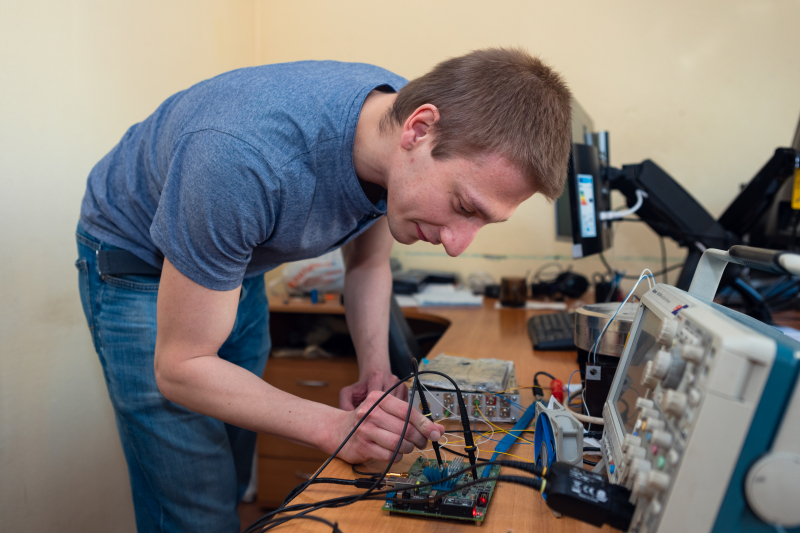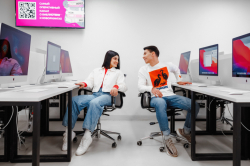Projects instead of textbooks
ITMO’s Higher School of Engineering and Technology offers its students a project-oriented approach because it is important to give future specialists who will work for leading companies straight after graduation the opportunity to have practical experience as close as possible to their future job. Many Master’s programs solve this task through internships and industrial practical training (those are not always paid). In this Master’s program the Higher School of Engineering and Technology students can work without leaving the university – and get paid for it:
“We don’t offer our students positions at companies during their training, on the contrary – our Master’s students work at university and get paid for the projects they contribute to. These can be R&D projects conducted by our researchers or the ones we run in collaboration with our industrial partners. We have joint projects with CSRI Elektropribor, as well as with companies that are part of Rusatom and Rostec. For instance, there is an impressive project on quantum amplifiers for Polar Express, the transarctic underwater fiber-optic line that will connect Murmansk and Vladivostok. This and all other projects are available for our Master’s students, who join our work and complete their Master’s thesis based on it,” says Ivan Deyneka, the head of the program.
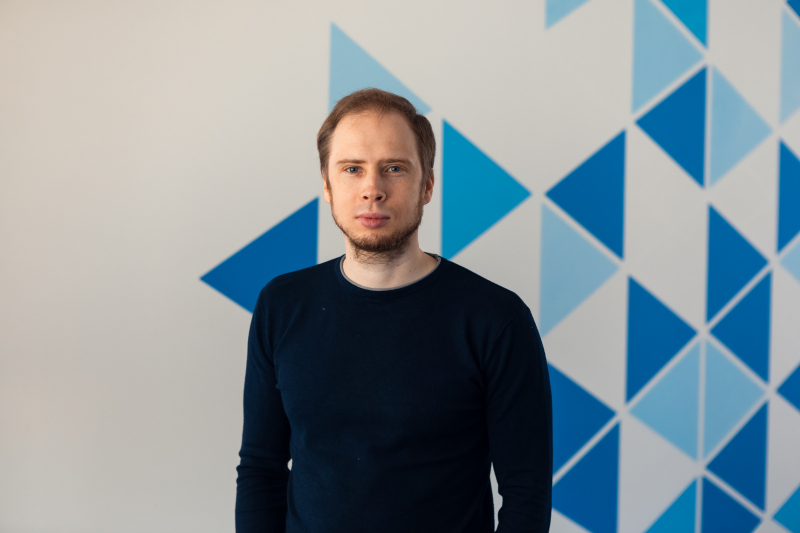
Ivan Deyneka. Photo by Dmitry Grigoryev / ITMO.NEWS
In order to train students to perform all kinds of engineering tasks, they get full access to lab equipment: evaluation boards with microcontrollers and programmable logic devices, robotic platforms, industrial manipulators, cameras, etc.
The curriculum
The new program, which will welcome its first students in September 2022, will offer three specializations:
- Control Systems Electoengineering (incl. robotic platforms);
- Sensor Systems Engineering (with a focus on programming logic integrated circuits and microcontrollers);
- Engineering of Computer Vision Systems (with a focus on optical systems).
Over the course of their training, students will master the fundamentals of С/C++ programming and their applications in real-time systems, as well as learn more about digital circuits, practical electronics, and converter equipment design. Depending on the chosen specialization, students will have different sets of specialized disciplines. Future control systems engineers will get to look into intelligent power converters and control algorithms, sensor systems specialists will study systems-on-a-chip and digital signal processing, and experts in computer vision will master image processing methods, object recognition algorithms, and video analytics.
Some courses will be implemented jointly with the Faculty of Control Systems and Robotics. These are, for instance, courses on intelligent power converters or the theory of control systems. The program also includes such core disciplines as Soft Skills, English for Specific Purposes, and Digital Culture.
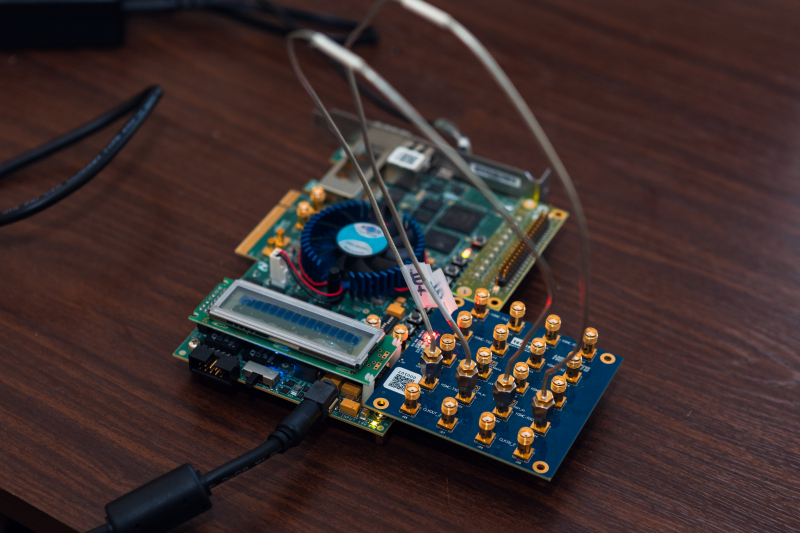
Stratix® V GX FPGA Development Kit and Terasic XTS-HSMC expansion board at ITMO’s Research Institute of Light-Guided Photonics. Photo by Dmitry Grigoryev / ITMO.NEWS
The main focus of the program will, however, lie on practical skills. Students will not only have their research supervisors but will also get to work together with the laboratories’ research teams. They will have the chance to join one or several of the ongoing projects, among them are an eye tracking system based on the Raspberry Pi microcomputer, a robot platform navigation, a control system of wind power plants, quantum amplifiers, fiber optics, information and measurement systems, and more.
Application requirements
The program is designed for prospective students with a Bachelor’s degree in technical physics, instrumentation, mechatronics and robotics, photonics and optoinformatics, electronics, electrical engineering, as well as computer science and computing technology. All in all, thirty students are expected to join the program.
Prospective students can enroll into the program via:
- the results of their entrance exams;
- I’m a Professional contest;
- ITMO Mega Contest;
- Winter Engineering School;
- Congress of Young Scientists;
- Porfolio contest;
- “It's Your Call!” Winter School.
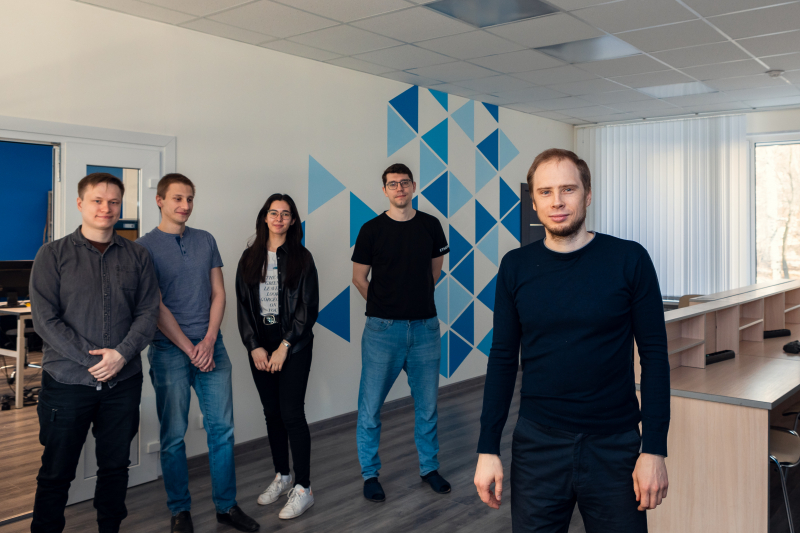
The staff members of ITMO’s Research Institute of Light-Guided Photonics. Photo by Dmitry Grigoryev / ITMO.NEWS
Career prospects
The overall goal of the new program is to train high-profile specialists with competencies at the intersection of electronics, programming, and algorithmization who will be able to pursue their careers both in academia (as part of research and engineering teams) and industry, for instance, as embedded systems programmers, PCB or optoelectronic device engineers, video analytics specialists, and so on.
As noted by Ivan Deyneka, graduates of the program will be equipped with skills and knowledge that are in demand not only among representatives of various businesses in the economy but also major IT companies, such as Yandex, Diakont, Vektor, CSRI Elektropribor, etc.
“Employers will surely be interested in experts who can quickly join the activities of their companies on the development of hardware and software products. Our graduates are future engineers with great programming skills who can design printed circuit boards and introduce the necessary control and signal processing algorithms based on PLDs, MCUs, and SoCs into device prototypes,” concludes Ivan Deyneka.
